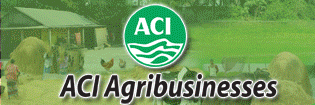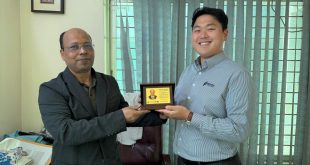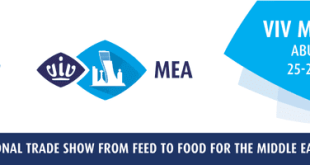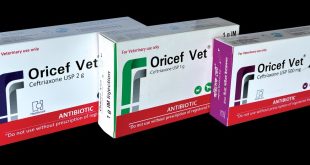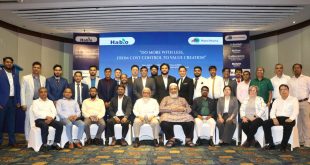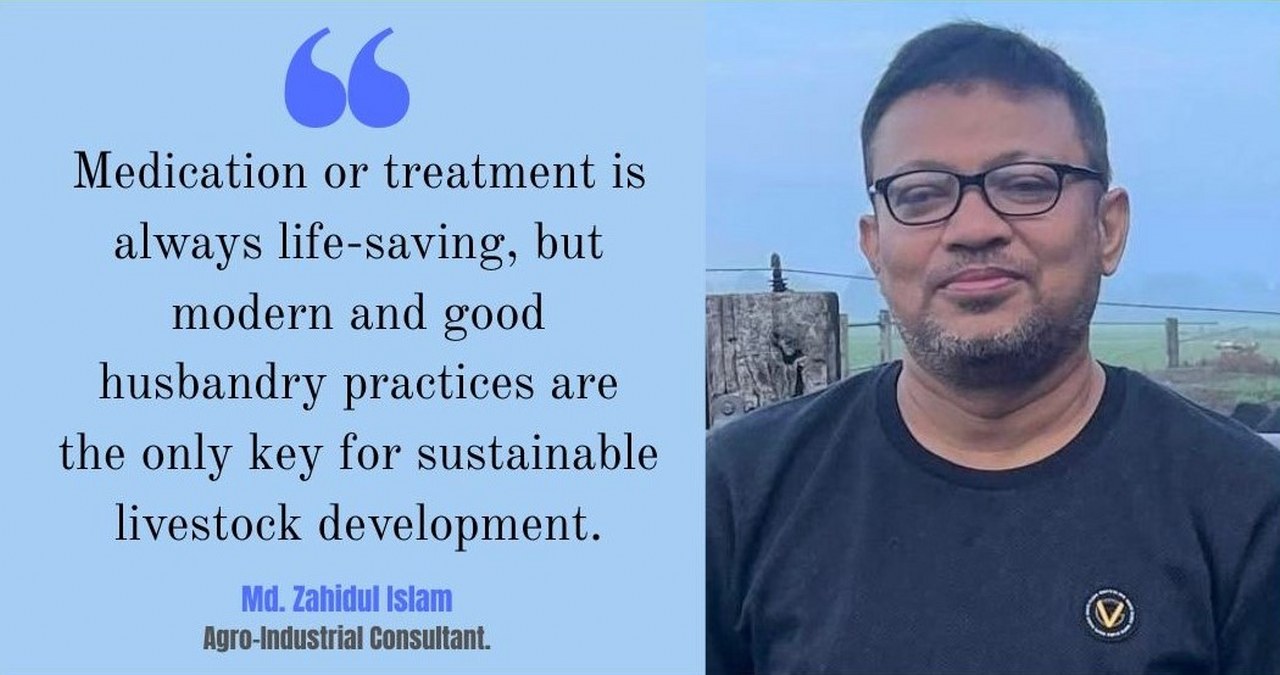 The East Pakistan Agricultural University Ordinance, 1961 was issued to lay the theoretical foundation for the establishment of an agricultural university in Mymensingh. • The ordinance clearly states: “An Agricultural University shall be established at Mymensingh…” • This ordinance came into effect on 18 August 1961, as a result of which the East Pakistan Agricultural University (now BAU) started its activities & Expansion of Animal Husbandry Faculty (1962) • The initial structure of the university included the Faculty of Agriculture and the Faculty of Veterinary Science. Later, in 1962, the Faculty of Animal Husbandry was added.
The East Pakistan Agricultural University Ordinance, 1961 was issued to lay the theoretical foundation for the establishment of an agricultural university in Mymensingh. • The ordinance clearly states: “An Agricultural University shall be established at Mymensingh…” • This ordinance came into effect on 18 August 1961, as a result of which the East Pakistan Agricultural University (now BAU) started its activities & Expansion of Animal Husbandry Faculty (1962) • The initial structure of the university included the Faculty of Agriculture and the Faculty of Veterinary Science. Later, in 1962, the Faculty of Animal Husbandry was added.
The rationale for the introduction of a joint venture, which combines DVM and AH, is questionable, as the heads of the various groups can be compared to our prepared statements.
A committee was formed by the Chief Marshal Law Administrator on 1977(Memo No. 405/15/CMCL dated on 22.03.77) where 101 post separated for AH graduate among 932 & also proposed for create entry level post at Thana level both AH & Veterinary graduate.
Ministry of establishment was strongly proposed to separate two directorate namely (i) Directorate of Animal Husbandry & (ii) Directorate of Veterinary Services their report published on 1980.
A high level of expert committee was formed by The University Grants Commission (UGC) on 1990, accordingly their comments “After having a threat bare discussion, the committee unanimously decided that the Bangladesh Agricultural University may continue to offer both the degrees Viz. B. Sc. (Veterinary Science) and B.Sc. (Animal Husbandry)”.
Ministry of Education was formed an expert committee through University Grants Commission (UGC) on 1994 where convener was Professor S.M. Samsul Haq, they clearly reported that if the two-faculty merged together then subjected oriented syllabus may be precises both for two faculty, as a result graduate from combined syllabus may not be fulfill the demand of treatment or husbandry.
Animal husbandry degree in the world
To pursue an Animal Husbandry degree worldwide, search for programs in countries like the USA, Australia, Canada, and the UK on educational platforms such as Hot courses Abroad and Educations.com. Look for degrees named Animal Science, Animal Production, or Animal Nutrition, which are often considered synonymous or closely related fields. Some notable institutions offering such programs include The University of Sydney, Michigan State University, and the University of Queensland.
Numerous universities worldwide offer degrees in animal husbandry, often known as animal science. These programs, available at undergraduate and graduate levels, cover a range of specializations from livestock production to animal welfare
Top-ranked programs are concentrated in the United States, Australia, the Netherlands, and the United Kingdom. Top global universities for animal science:
North America:
- University of California, Davis (UC Davis) : Highly ranked and home to one of the top animal science departments in the U.S. It offers majors in Animal Biology and Animal Science & Management.
- Cornell University: This Ivy League institution offers strong programs in animal science and consistently ranks among the top universities globally for plant and animal science.
- Texas A&M University: A major U.S. university with highly ranked programs in animal and plant science.
- University of Guelph (Canada): A top-ranked university for veterinary science, it offers extensive animal science programs.
- Michigan State University: Offers undergraduate and graduate degrees in Animal Science and ranks highly in agriculture and animal sciences.
Europe:
- Wageningen University and Research (Netherlands): Consistently ranked among the top global universities for animal science, known for its focus on sustainability and biotechnology.
- Royal Veterinary College (UK): As part of the University of London, the RVC is a top-ranked institution for veterinary science and offers postgraduate degrees in livestock health.
- Swedish University of Agricultural Sciences (Sweden): Offers master’s programs in Animal Breeding and Genetics, focusing on sustainable animal husbandry.
- University of Göttingen (Germany): Provides an interdisciplinary master’s degree in Integrated Plant and Animal Breeding, with links to international research and industry.
- University College Dublin (Ireland): Offers an MSc in Animal Science through distance learning, focusing on advanced studies in the livestock sector.
Oceania:
- The University of Sydney (Australia): A highly ranked university with multiple programs related to animal husbandry.
- The University of Queensland (Australia): Known for its strong programs in animal science and research.
- Massey University (New Zealand): Offers a Master of Science in Animal Science and ranks highly for veterinary science.
Other notable institutions:
- The Hebrew University of Jerusalem (Israel): Offers an MSc in Animal Sciences with a focus on modern agriculture, animal physiology, and sustainable production.
- University of Pretoria (South Africa): Ranks among the top global universities for plant and animal science.
- Zhejiang University (China): A top global university with recognized animal science programs.
Specializations within animal husbandry degrees
Beyond general animal science, many universities offer specialized tracks or degree options that focus on specific areas of animal production and welfare. Examples include:
- Animal Biotechnology: Focuses on using modern techniques to improve animal health, production, and genetics.
- Livestock Production and Management: Covers the practical and business aspects of managing farm animals like cattle, sheep, and pigs.
- Equine Science: A specialized field focusing on the biology, health, and management of horses.
- Animal Nutrition: Covers the dietary needs of various animals and the development of feed.
- Animal Health and Welfare: Explores the physical and mental well-being of animals in different settings.
BAHS is a platform for animal husbandry professionals belongs with private sectors like Poultry & livestock Industries, NGOs, nutritional additives companies etc. Members of BAHS express their deeply sorrow for this kind of unexpected situation, if we unable to resolve present situation which will be big threat for modern & sustainable livestock development on upcoming future.
As commitment of BAHS, their vision will produce safe, healthy & affordable meat, eggs & milk for our nation through skills development of our graduates either combined degree (Vet & AH) or separation or specialization degree. In these unavoidable circumstances we never avoid our eyes, so our observation & suggestion as follows:
Observation:1
Private entrepreneurs are the main stakeholders for development of modern Poultry & livestock industries rather than Govt. bodies, but of course govt. institutions keep their eyes with their policy, training & monitoring tools. Animal husbandry professionals play vital & key roles within their farming; hatching & feed milling units & veterinarians have performs & collaboration their expertized as associate division through regular health monitoring, if necessary, disease identification & prescribe treatment. Nearly 400-500 AH graduates work with private sectors like Kazi farm, Nourish, CP Bangladesh, Paragon group, Nahar group etc.
Observation: 2
Medication or treatment is always live saving tools, any treated animal/poultry never come back their existing economical traits like meat, milk or egg production at initial stage after treatment, then it’s a big question for their economical survive Ness. So modern & good husbandry practices are only key for live industrial development.
Observation-3
Worldwide country based geographical area is fixed, we can never able to increase single inch land within our geographical demarcation, but we have to increase crops, milk, meat & egg production against our yearly population growth & also highly demand for create a healthy nation. So, specialization, separation & mechanization will be main key for quantity & quality development of daily nutritional requirement like crops, meat, milk, eggs & fish.
Observation-4:
We can observe that lot of specialized department/faculty have launched in education system on last 3 decade for improve efficiency & quality life, for example Environmental science has extract from Geography, statistics & social science, Data science & technology which is combines principles from mathematics, statistics, computer science, and artificial intelligence (AI) to analyze large datasets.
What’s are going on now
We may know that egg, milk & meat are cheapest & safe source of protein & also we declared that egg is super food against all ages of human. But now a days we worried about to consume safe protein from animal sources, consumers want to safe platform will ensuring safe, healthy & secured foods for safety life with green environment. what its justification & why & how to overcome from this blame. So, we try to find out the roots of these consequences.
- Antibiotic & medication-based poultry & livestock production chain, as a result it’s a big question of safe & healthy eggs, meat & milk production.
- There is no any policy qualified parameter against Animal nutritionists, so each & every graduate from live science like AH, veterinary, Merine science, biological science easy entrance as animal nutritionist.
- Whatever degree have at the time of recruitment at private sectors as trainee officer, Private entrepreneurs trained them to become an asset of their company.
- Bio-security protocols maintain at root levels farms observed at very minimum level but medication practices always prefer by doctors, dealers & farmers.
- Private entrepreneurs are always evaluating skills, experience & dedication from their employees, so degree is their secondary parameters.
- Mind setup of our industries peoples has changed on last 4-5 years, now customer services mean only veterinary services, so when flock faced any disease or under production issues then customer services activities are started but it should be needing good husbandry practices for any disease prevention issues.
Our suggestions
The field on our Poultry & livestock sector directly involve with our food chain so there are no any alternative or short cut way to development rather than our skill development in micro level, we have suggested the following strategical points to enrichment & modernizations of our professions steps up with modern globalization:
- Syllabus & Curriculum upgradation where focus on self-efficiency improvement & safe & quality products innovation with least cost, so we have to work on below specialized subjects:
- Mechanization/Livestock & Poultry engineering: Encompasses the design and optimization of systems for poultry production, involving subjects such as poultry housing and environment control, hatchery technology, automation, equipment design.
- Waste management: Main key Poultry & livestock waste convert to wealth.
- Technology behind safe milk, meat & egg production: Nutritional optimization, Disease prevention, and farm management to improve efficiency, animal welfare, and product quality in the poultry industry.
- Artificial intelligence (AI) in livestock farming: uses Sensor & Micro-chips-based feeding system, cameras, and machine learning to monitor animals, optimize feeding and breeding, and detect diseases early, improving animal welfare, farm efficiency, and productivity. To reduce the per unit production cost.
- IoT base smart farming: Which lead to farm monitoring system.
- Assays Carbon foot print entire Poultry &Live-stock production chain: Less or zero carbon emission through using renewal energy in poultry & livestock industries where may key to calculate carbon foot print in specific areas with mitigation process which lead to green environment & save the globe.
So, lots of area are still unseen & un-touch but it’s necessary to serve our duties parallelly with globalization otherwise we can’t sustain our profession, not only that we also unable to increase production against our yearly population growth & also mentioned that “combined degree (Vet & AH)” is big question of its worldwide recognition. So, decisions are yours.
Author: Md. Zahidul Islam, Agro-Industrial Consultant.
 Agrinews24 কৃষির সাথে, কৃষকের পাশে
Agrinews24 কৃষির সাথে, কৃষকের পাশে
